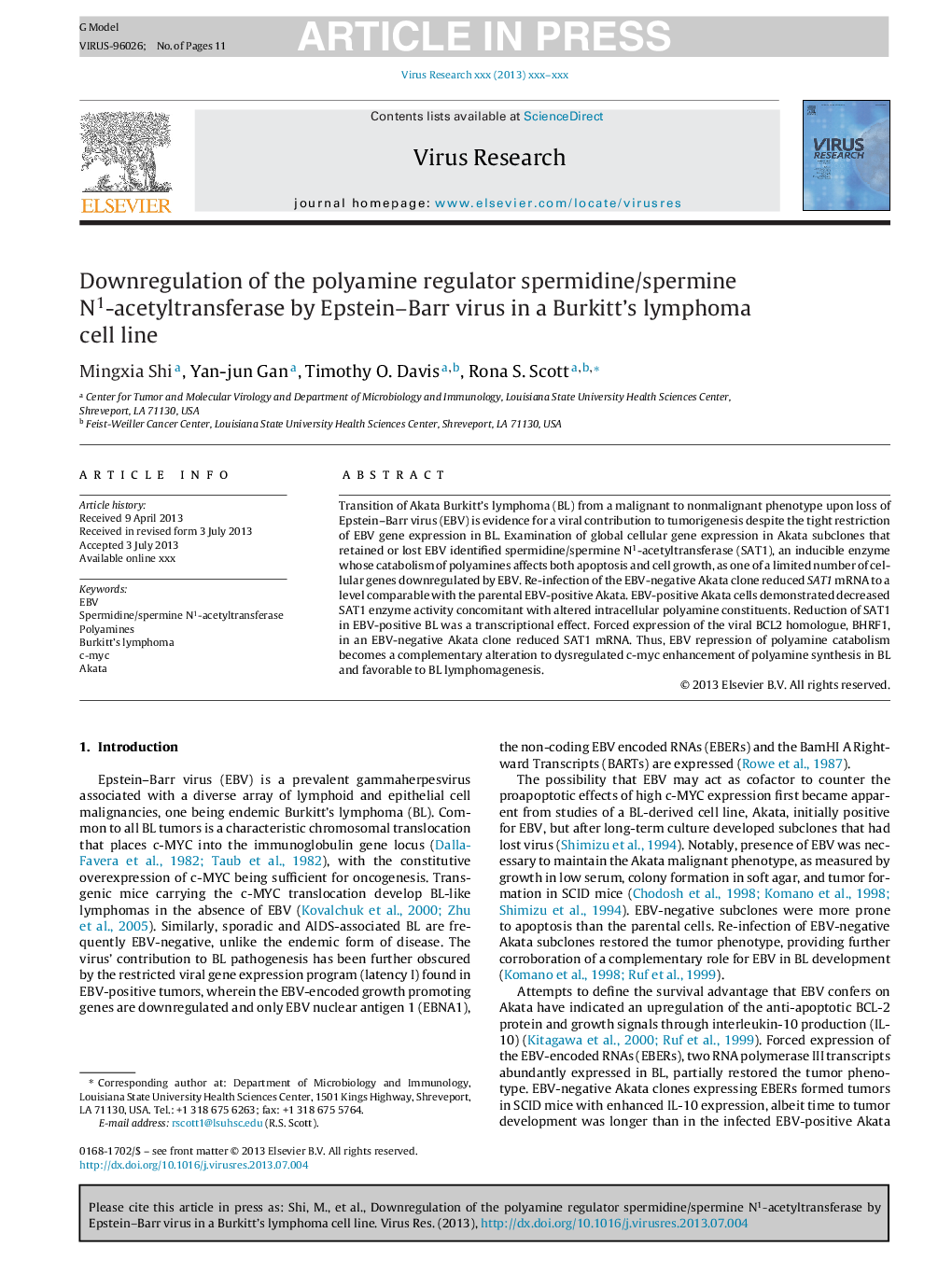| Article ID | Journal | Published Year | Pages | File Type |
|---|---|---|---|---|
| 6142843 | Virus Research | 2013 | 11 Pages |
Abstract
Transition of Akata Burkitt's lymphoma (BL) from a malignant to nonmalignant phenotype upon loss of Epstein-Barr virus (EBV) is evidence for a viral contribution to tumorigenesis despite the tight restriction of EBV gene expression in BL. Examination of global cellular gene expression in Akata subclones that retained or lost EBV identified spermidine/spermine N1-acetyltransferase (SAT1), an inducible enzyme whose catabolism of polyamines affects both apoptosis and cell growth, as one of a limited number of cellular genes downregulated by EBV. Re-infection of the EBV-negative Akata clone reduced SAT1 mRNA to a level comparable with the parental EBV-positive Akata. EBV-positive Akata cells demonstrated decreased SAT1 enzyme activity concomitant with altered intracellular polyamine constituents. Reduction of SAT1 in EBV-positive BL was a transcriptional effect. Forced expression of the viral BCL2 homologue, BHRF1, in an EBV-negative Akata clone reduced SAT1 mRNA. Thus, EBV repression of polyamine catabolism becomes a complementary alteration to dysregulated c-myc enhancement of polyamine synthesis in BL and favorable to BL lymphomagenesis.
Related Topics
Life Sciences
Immunology and Microbiology
Virology
Authors
Mingxia Shi, Yan-jun Gan, Timothy O. Davis, Rona S. Scott,
